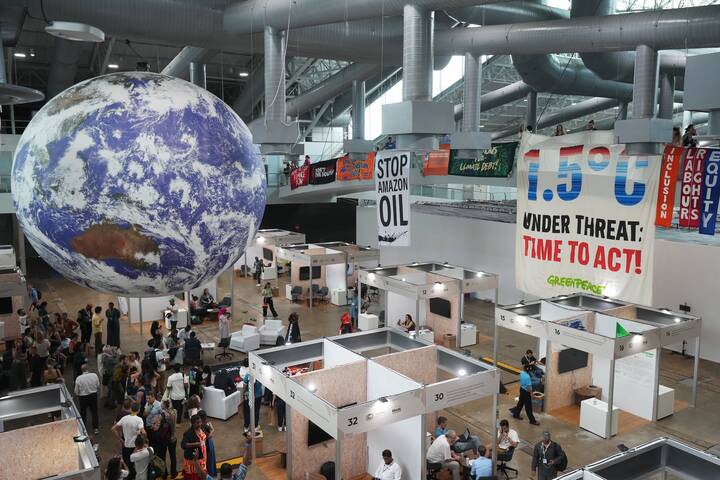Brazil, the host of the COP30 climate summit, is urging countries to come together and reach a meaningful agreement, as negotiations drag past their scheduled end. The talks have hit a standstill over whether the global accord should clearly chart a path away from fossil fuels.
COP30 President André Corrêa do Lago emphasized the importance of collaboration, telling delegates, “This cannot be an agenda that divides us. We must reach an agreement between us.” Brazil has framed the summit as a pivotal moment for international climate cooperation, pressing nations to set aside differences and demonstrate that collective action remains the strongest tool against global warming.
The draft agreement, released by Brazil in the early hours, notably removed any references to fossil fuels. Earlier drafts included options addressing oil, gas, and coal, but these were opposed by major fossil fuel-producing nations, even as around 80 governments supported keeping them. The omission highlights the difficulty of securing consensus in a forum where economic interests often collide with climate imperatives.
Fossil fuel burning remains the single largest contributor to greenhouse gas emissions and global warming, making this debate central to COP30’s objectives.
The Fossil Fuel Divide
The standoff continued, leaving the summit in deadlock. Panama negotiator Juan Carlos Monterrey warned, “Failing to name the causes of the climate crisis is not compromise. It is denial.” Meanwhile, the Arab Group — including Saudi Arabia and the UAE — reportedly emphasized that energy industries were off-limits, cautioning that targeting them could collapse negotiations.
The European Union also voiced concerns. Climate Commissioner Wopke Hoekstra stated that while the EU could consider flexibility on climate finance for developing nations, the draft must strengthen commitments to reduce emissions and support the global shift from fossil fuels to clean energy.
Brazilian negotiators indicated that language on fossil fuels is unlikely to return, with only minor adjustments expected in the current draft.
Delays and Multilateral Pressure
The summit, held in Belem in Brazil’s Amazon region, was scheduled to conclude yesterday but has extended late into the night, a common feature of COP meetings. Consensus among nearly 200 participating countries is required to adopt any agreement. The absence of the United States — with no official delegation this year — underscores the urgency of unity among remaining nations, Corrêa do Lago noted, adding, “The world is watching.”
Finance and Trade Talks
The draft also calls for tripling climate adaptation finance by 2030 compared to 2025 levels. However, it remains unclear whether this funding will come directly from wealthier nations, development banks, or private sources, which could concern vulnerable countries relying on predictable public support.
Additionally, the draft proposes initiating a dialogue on trade at future UN climate talks, a move welcomed by nations like China but potentially contentious for the EU due to its carbon border levy policies.
As COP30 continues, the outcome remains uncertain, but Brazil’s message is clear: the world must find common ground if global climate action is to advance. This is more than a conference; it is a test of international will and a call to collective responsibility for the planet’s future.




